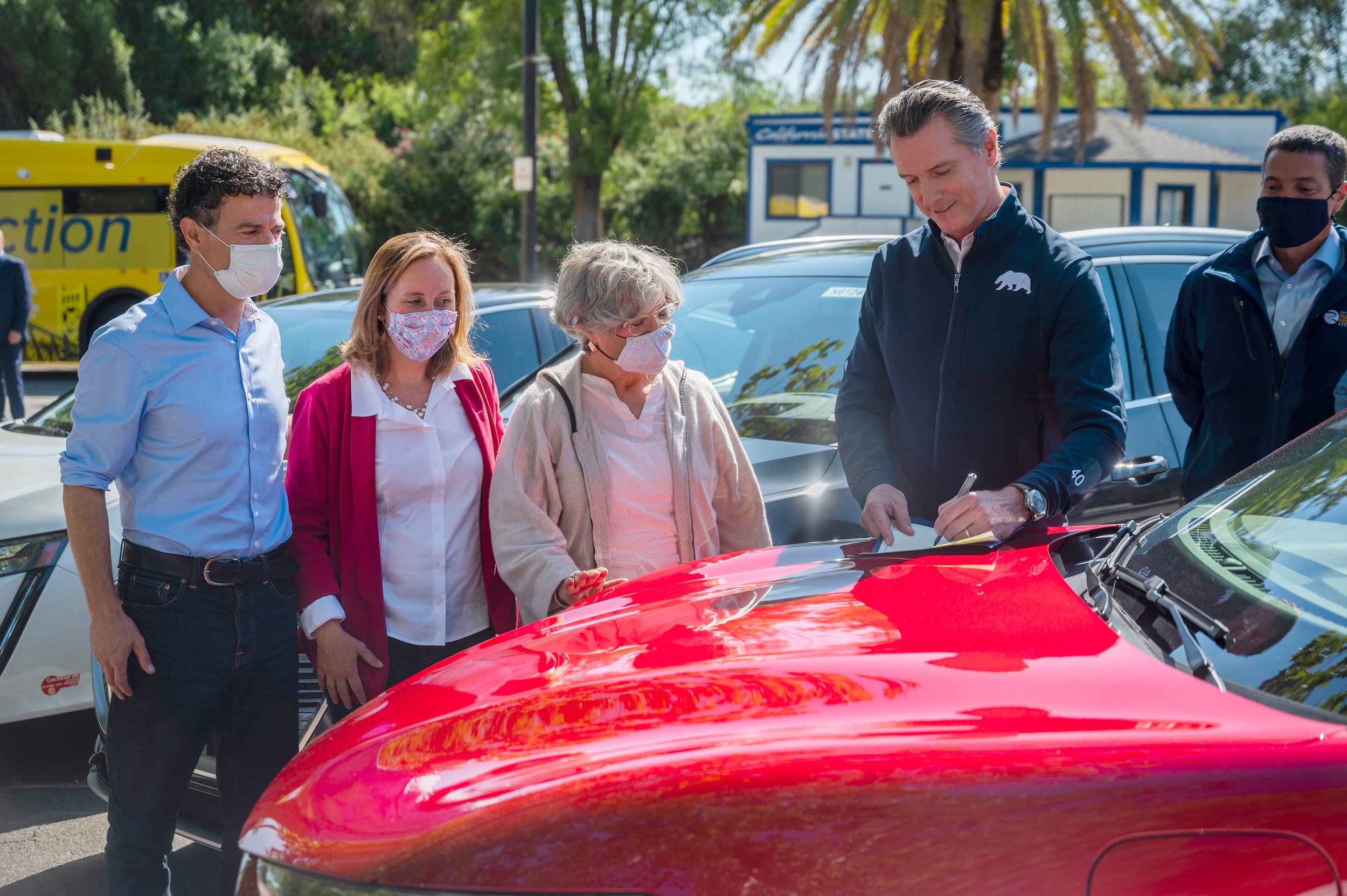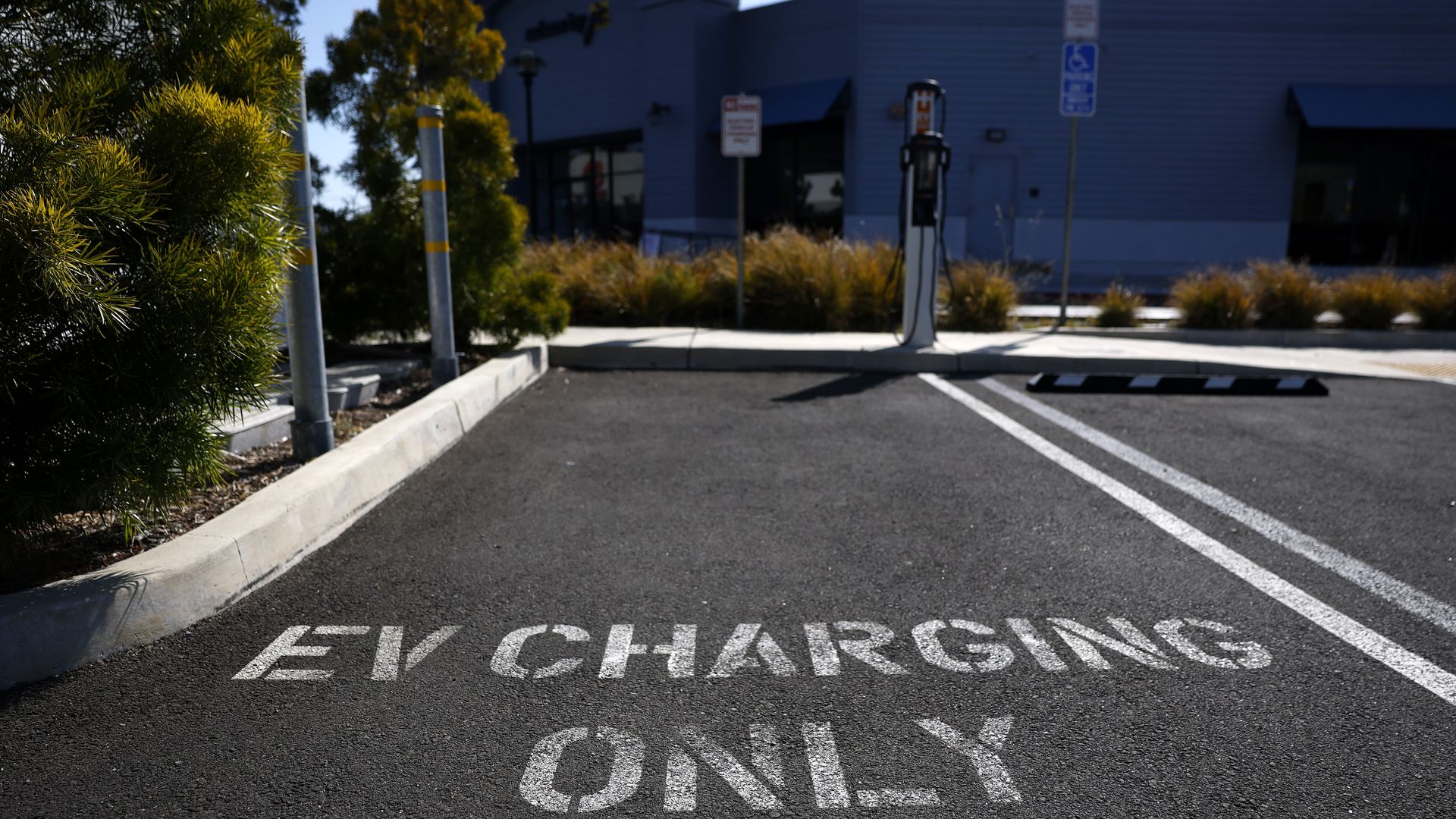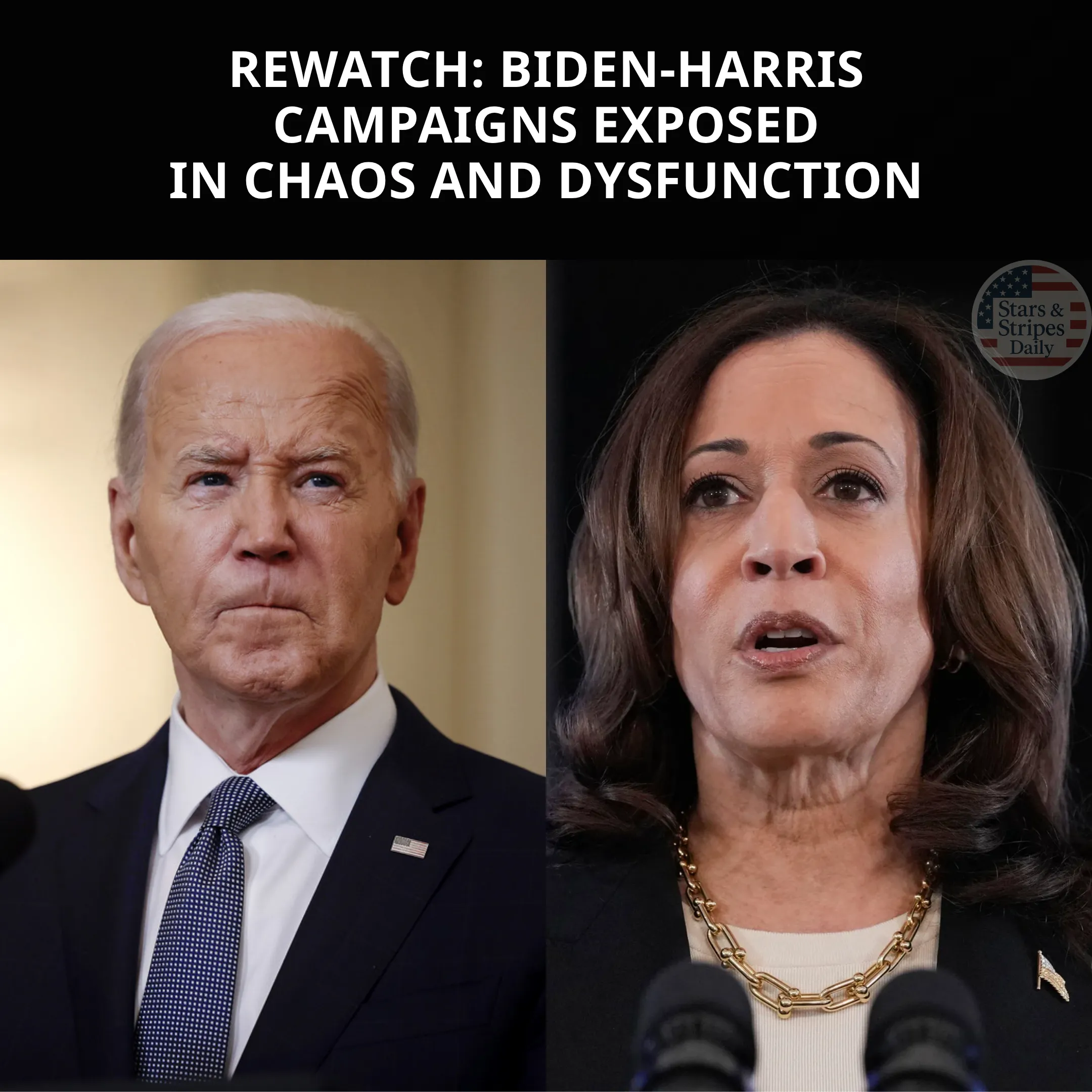
The U.S. Supreme Court has dealt a significant blow to California’s aggressive climate agenda with a 7-2 ruling that permits energy producers to challenge the state's strict electric vehicle (EV) mandates.
In a decision that unites the conservative wing with even a liberal justice, the Court made it clear that California’s push for environmental dominance could be unlawful and excessively burdensome on businesses.
At the heart of the case is the state’s ambitious mandate to transform its vehicle market. By 2035, California plans to require that electric vehicles comprise a substantial portion of its car sales, as part of Governor Gavin Newsom’s broader initiative to make the state carbon neutral.
However, this sweeping policy has faced legal opposition from a number of industries, notably fuel producers, who argue that such regulations overstep California’s authority and threaten economic stability.
Justice Brett Kavanaugh, writing for the majority, emphasized the heavy-handed nature of California's mandates. He questioned whether the U.S. Environmental Protection Agency (EPA) could legally approve regulations that disproportionately impact certain industries without giving them a legitimate right to challenge these laws.
According to Kavanaugh, the government cannot simply target businesses for stringent and allegedly unlawful regulation while blocking them from seeking legal recourse.
“The government generally may not target a business or industry through stringent and allegedly unlawful regulation, and then evade the resulting lawsuits by claiming that the targets of its regulation should be locked out of court as unaffected bystanders,” Kavanaugh stated in the majority opinion.
This argument was based on the assertion that fuel producers, who are being directly impacted by the state's EV regulations, have legal standing to challenge these policies.

The ruling focused on the issue of California’s 2012 request for EPA approval of new regulations. These regulations demanded automakers in the state to reduce average greenhouse gas emissions across their fleets and to increase the number of electric vehicles sold in the state.
The Court also noted that the EPA’s position on the legal justifications for California’s green agenda had shifted several times over the years, casting further doubt on the validity of the regulations.
Kavanaugh pointed out that the EPA had consistently altered its stance on whether the Clean Air Act even permits such sweeping regulations for greenhouse gas emissions, calling into question the federal agency’s credibility.
This setback for California comes in the wake of President Donald Trump’s actions earlier this month, when he signed resolutions dismantling key parts of California’s climate agenda.
Trump’s efforts have significantly undermined the state’s push to lead the nation in green energy policy. Governor Newsom, a vocal proponent of climate action, has seen his state’s climate strategy repeatedly challenged on multiple fronts, with the latest defeat serving as a major blow to his ambitions for the state’s environmental future.
Chet Thompson, the president and CEO of American Fuel & Petrochemical Manufacturers, one of the groups behind the lawsuit, expressed strong support for the Supreme Court’s decision.
He declared it a landmark ruling that confirms fuel manufacturers have the right to challenge what they believe to be unlawful electric vehicle mandates.
Thompson further criticized California’s attempt to regulate greenhouse gases, mandate electric vehicles, and phase out gasoline cars, arguing that such policies exceed the state’s authority and threaten the broader national interest.

“The Supreme Court put to rest any question about whether fuel manufacturers have a right to challenge unlawful electric vehicle mandates,” Thompson said in a statement.
“California’s EV mandates are unlawful and bad for our country. Congress did not give California special authority to regulate greenhouse gases, mandate electric vehicles or ban new gas car sales, all of which the state has attempted to do through its intentional misreading of statute.”
The legal battle over California's green energy agenda is far from over. While the Supreme Court’s ruling enables fuel producers to continue their lawsuit against the EPA, it also highlights the broader national debate over the future of energy policy in the U.S.
California’s climate leadership has long been a source of contention, as many other states argue that the state’s environmental policies impose unnecessary burdens on businesses and undermine economic stability.
This case marks yet another chapter in the ongoing battle between California’s progressive climate goals and the interests of industries that rely on traditional energy sources.
Supporters of California’s push for green energy reforms argue that the state is taking the necessary steps to combat climate change and promote sustainable practices.
However, opponents, including those who support the ruling, see California’s actions as an overreach that risks damaging the economy and infringing upon federal authority.
The decision also adds fuel to the political fire surrounding Governor Gavin Newsom’s policies. As one of the potential contenders for the 2028 presidential election, Newsom’s leadership on climate issues has made him a target for criticism, especially from conservative circles.

This recent defeat for his climate agenda comes at a time when Newsom’s environmental policies have faced mounting legal challenges from various quarters.
In addition to the Supreme Court ruling, Newsom has also encountered setbacks in other legal battles. Earlier this month, the Ninth Circuit Court of Appeals overruled a lower court decision and allowed the Trump administration to maintain control over the California National Guard.
This decision was another blow to Newsom, who had hoped to reclaim authority over the National Guard in the state. The Ninth Circuit’s ruling allows President Trump to continue deploying the National Guard in Los Angeles, a move that Trump argued was necessary to protect the city from violence and civil unrest.
The ongoing tension between Newsom and the Trump administration underscores the broader political struggle in California, a state that has long prided itself on progressive policies but is now encountering increasing resistance from conservative legal forces.
The decision on the EV mandates is just the latest in a series of setbacks for Newsom’s ambitious green energy policies, which have become a key part of his political identity.
Despite the Court’s decision, California remains committed to its green energy agenda. The state’s ambitious goals to reduce greenhouse gas emissions and transition to renewable energy sources remain intact, but the legal landscape has clearly shifted in response to growing concerns about the impact of such policies on businesses and consumers.
Supporters of California’s environmental policies argue that the state is leading the way in addressing the climate crisis, pointing to the long-term benefits of transitioning to cleaner energy sources.
However, the recent Supreme Court ruling signals that such policies may face increasing legal challenges, particularly from industries that see them as overly restrictive and detrimental to their bottom lines.

In the coming months, the legal battle over California’s electric vehicle mandates is likely to continue as the case progresses through the courts. It remains to be seen whether the state will be able to uphold its aggressive green energy goals or whether this Supreme Court ruling will pave the way for further legal challenges that could limit the scope of California’s environmental regulations.
For now, the ruling stands as a clear reminder that the battle over climate policy is far from over. With legal challenges mounting and political divisions deepening, the future of California’s ambitious green energy agenda remains uncertain.



